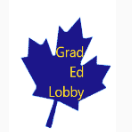In Fabrication Nation Land, you can fool some of the people some of the time, even in the most hallowed of academic institutions. So the fabrications of doctoral student, Jason Richwine’s in his 2009 dissertation, for which he received a Ph. D. from The John. F. Kennedy School of Government, which is housed within the most reputable of universities, Harvard, escaped capture. 
Below is the conclusion which tied together of Dr. Richwine’s research.
As the previous chapters have discussed, today’s immigrants are not as intelligent on average as white natives. The IQ difference between the two is large enough to have substantial negative effects on the economy and on American society. The deficit cannot be dismissed as meaningless or transient. It is transferred across generations – whether via genes, environment, or both – in a manner that we do not yet know how to prevent. Although this is a depressing conclusion, it does not help us focus on a new opportunity. On trying to reverse the cognitive decline of immigrants, we could begin to seek out underprivileged people who have the raw mental ability to achieve personal success, while still helping ourselves at the same time. (The Nation of Change Blog, excerpt from Jason Richwine’s dissertation “Immigrations and IQ” p. 134)
Notice the generalizations which support racism. White natives? Who are white natives?
In the May 14, 2013 (in segment 1 @ the 8:00minute mark) broadcast of The Colbert Report, the doofus news anchor Colbert spoofs the term ‘white natives’ saying there are none. His logic? All ‘natives’ to America are Indigenous people, none of whom are ‘white.’

Colbert exposes alarming statements in the dissertation like:
“The average IQ of immigrants is the US is substantially lower than that of the while native population and is likely to persist for several generations.”
“No one knows whether Hispanics will ever reach IQ parity with whites, but the prediction that new Hispanic immigrants will have love IQ children and grandchildren is difficult to argue against.”
Aren’t doctoral dissertations supposed to avoid broad brush generalizations? Notice the broad brush terms, today’s immigrant’s, white natives, intelligence, genes, environment; all of which support a thesis that takes the long discredited ideas of a scientific basis for racism out of the closet, dresses them up and pulls out a bona fide Ph. D., from Harvard.
“Some critics say that the thesis’ suggestion of a long-term gap in the IQs of Hispanic immigrants and their descendants and the IQs of other groups is based on discredited theories that have been used to justify many forms of discrimination over the years. And they question how Harvard could award a PhD based on such a thesis… Twenty-three student organisations at Harvard issued a joint letter questioning the legitimacy of the thesis that awarded Dr Richwine [ a Ph. D].” (Times Higher Education, May 13, 2013).
“I most certainly understand that this issue, as reported, troubles many people,” said a statement released by David T. Ellwood, dean of The Kennedy School. “First, the views and conclusions of any graduate of this school are theirs alone, and do not represent the views of Harvard or the Kennedy School. ” (THE)
Does David T. Ellwood expect us to believe that as a doctoral student, Mr. Richwine, developed his research project without input from a supervisor or committee before he sat his oral? My doctoral advisor nixes my ideas. She gives me feedback and guidance but also admits my new evidence into consideration to change her opinions. If I succeed in this doctoral project, she and Athabasca University, Centre for Distance Education, may take credit. I ain’t doing nuttin’ they don’t like. Isn’t the point of the Harvard brand, which enjoys a truly awesome, towering intellectual stature globally, that work which it endorses, not only meets the highest standard, but pushes the frontier of knowledge further?
Harvard Dean, David Ellwood then steps in it even further with point number two.
“Second, all PhD dissertations are reviewed by a committee of scholars. In this case, the committee consisted of three highly respected and discerning faculty members who come from diverse intellectual traditions.”
So the dissertation passed the sniff test. One of the examiners, a professor of political economy, Richard Zeckhauser says, “Jason’s empirical work was careful. Moreover, my view is that none of his advisors would have accepted his thesis had he thought that his empirical work was tilted or in error.” Yeah but Jason’s sources for his ‘careful’ empirical investigation included discredited academics, Charles Murray (The Bell Curve) and J. Phillip Rushton, the ignominious academic who revived the pseudo-science associated to Nazi Germany.
Isn’t one of the litmus tests of doctorate- worthy scholarly work, the ability to read the literature, put it into context, and above all discern its credibility? Hey Jason you fail the literature review if you include Rushton and Murray as a credible sources. Hey Jason’s committee you fail the test as examiners. How could this kind of sourcing in a literature review get by you?
It sounds like committee member Richard Zeckhauser assumed Jason’s advisors held Jason to account before allowing the dissertation to proceed to examination, instead of doing his job. Where was Dr. Zeckhauser’s thoughtful analysis when he examined Jason’s dissertation?
A second examiner, George Borjas, a professor of economics and social policy, distances himself from responsibility by saying, “I have never worked on anything even remotely related to IQ, so don’t really know what to think about the relation between IQ, immigration, etc…In fact, as I know I told Jason early on since I’ve long believed this, I don’t find the IQ academic work all that interesting. Economic outcomes and IQ are only weakly related, and IQ only measures one kind of ability.” Yeah well if he told Jason this early on, why did he give Jason a pass? Why did he let Jason proceed? Why didn’t he recuse himself?
The Kennedy School Dean finishes off his defense of the granting of Jason’s Ph. D., with a reminder of academic freedom.
“Finally and most importantly, it is vital that an active and open debate of ideas occur in universities and beyond them. Scholars and others who disagree with particular ideas or methods or who are unhappy with conclusions can and must openly engage in reasoned discussion and criticism, after looking fully and carefully at the work. It is through ongoing vigorous give and take that good ideas will ultimately emerge and weaker ones can be displaced.”
How ironic. Weaker ideas like Rushton’s and Murray’s, have been displaced through vigorous give and take that occurred in the 90s, save in Jason’s dissertation, where weak ideas were allowed to go on unchecked.
If scholarship evolves from the process the Dean describes and I think we doctoral students want to believe that it does, then Jason’s dissertation should have been stopped dead at the proposal stage.
Once these ideas were given the go ahead what kinda phoney academic discourse occurred at Jason’s oral defense and all along?
“Mr. Richwine, elaborate on your methodology to discern the pattern of standard deviational variance in favour of white natives on Stanford-Binet IQ tests and the possible genetic correlates and phrenological measurements for this finding?”
“Mr. Richwine please speak to the need for immigration screening on the basis of successive-generational, longitudinal patterns that fail show a regression toward the norm in Hispanic immigration between say 1929 and 1987?”
Discuss your literature review Mr. Richwine. How would you tell the story of scholarship on immigration and IQ as taken up in the scholarly work? Oops this question seems too authentic and could have unraveled the entire project.
In rock ‘n roll the line “The things that pass for knowledge, I don’t Understand.” (Burton Cummings) sums up my incredulity. The problem is that I’m a doctoral student, studying doctoral pedagogy and I need to understand. Maybe sophistry worked for Jason Richwine. After all, his committee thought he had careful methodology, even though one member of it now confesses to never having worked on anything remotely connected to IQ.
The good news is that for all the worry which keeps doctoral students awake at night, agonizing to reconcile every contradiction in an argument, preparing to show a catholic sweep through a literature, and finally positing original answers to penetrating questions, there is no need to worry. If Jason could fool his Harvard committee with this “offensive screed with no credibility,” (Colbert) they might too.
The bad news is that Jason’s dissertation and doctoral education undermines the value of the Ph. D, the scrutiny of scholarship and the reputation of Harvard. If mighty Harvard falters, such disgrace casts a pall on all of academia. I actually considered quitting my doctoral program when I learned this story.
Do you think that Jason’s dissertation undermines the value of a Ph. D.? Academics? Universities? Doctoral education? How was Harvard University able to give Jason Richwine a Ph. D.?
If anyone reading this is looking for an dissertation subject, how about an autopsy of Jason Richwine’s successful completion of the requirements for a Ph. D. at Harvard, or how the doctoral program, examining committee, school, and advisors at Harvard came to approve this dissertation. Maybe there are other such dubious dissertations, which may be unearthed.
For those of us studying doctoral education, such knowledge may prevent future fabrication fiascos.
Sources
http://www.timeshighereducation.co.uk/news/inside-higher-ed-should-his-phd-have-been-granted/2003804.article
http://www.nationofchange.org/blogs/michael-matthew-bloomer/will-jason-richwine-s-retrograde-harvard-ph-d-dissertation-iq-and-immi
The Colbert Report, episode broadcast on May 14, 2013 segment one @ the 8 minute mark.
Charles Murray
J. Phillip Rushton
Follow-Up
May 14, 2013 – Dan Brown
Central






